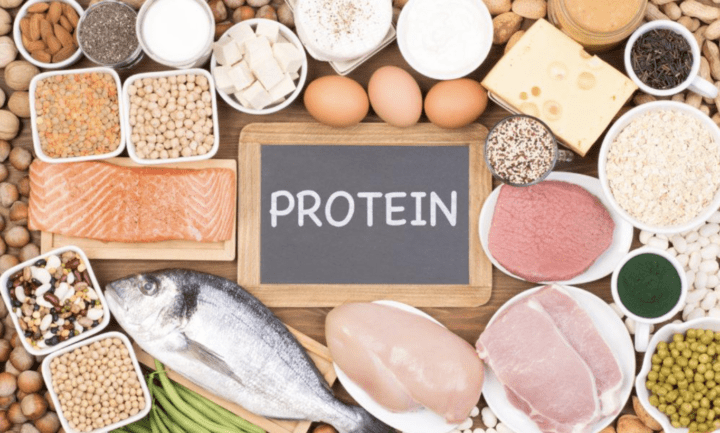The Difference is Clear with CLARITIN
Ever have one of those days? You know the kind…allergies driving you insane. You cannot breathe right. Your eyes are watery. Your nose is stuffed up. I just feel off on those days. The...
Protein is truly one of the most crucial nutrients your body needs, and getting enough of it should be a top priority. See, protein isn't just for bodybuilders trying to stack on muscle. It has vital roles in nearly every process in the human body – from building and repairing tissue to making important hormones and enzymes. No matter who you are, protein should be on your radar.

This is likely the benefit most people already associate with protein, especially among fitness buffs and bodybuilders. And for good reason! Protein provides the amino acids that are the building blocks your body uses to add and repair muscle tissue. Without it, you simply can't effectively recover from workouts or build your muscles over time.
Consuming protein around workouts is particularly important. Your muscles are primed to soak it up and put it to use. Skip the protein after lifting, and you miss that crucial muscle-building window. But maintaining your muscle mass as you age relies on getting enough protein day in and day-out too.
After around age 30, adults can lose up to 3-5% of muscle mass per decade. However adequate protein intake helps counteract age-related muscle wasting and weakness. The recommendation is to eat around 0.36 grams of protein per pound that you weigh per day. That ensures your body has plenty of amino acids to continually repair exercise damage and offset muscle loss over time.
For a 150-pound person, that equates to about 54 grams daily. And if building muscle is the goal, aim for the higher end of recommended intakes. That’s where supplements like organic whey protein get you there more easily!
It's fascinating to learn that protein is incredibly satiating, making it a top choice for curbing hunger. Research consistently shows that diets rich in protein lead to reduced appetite, improved portion control, and more significant weight loss than those low in protein. This means that incorporating the best protein powders for weight loss into your diet can not only support muscle growth but also help you manage your hunger and achieve your weight loss goals more effectively.
Several theories explain protein’s superior impact on appetite and metabolism:
On the flip side, skimping on protein leads predictably to increased hunger and cravings. The more protein you eat, the more body fat you tend to lose too, even without cutting carbs and fat. The satisfying nature of protein-rich foods, combined with protein’s innate metabolism-revving abilities, gives your body an automatic edge for shedding fat.
You probably know that calcium builds strong bones, but here’s something you may not know…

Several analyses tie low protein diets to decreased calcium absorption and weaker bones over time. The theory is low protein intakes alter hormone levels in a way that promotes more bone breakdown than building. However, even small increases in protein make a difference. Consistently meeting protein recommendations protects bone mineral density all over your body – reducing fracture risks as you age. This is especially important for women protecting against osteoporosis. But men with low protein intakes also show rapidly declining bone mineral density over 10-year periods.
Now this one may surprise you… Consuming enough protein doesn’t just help balance your physical health. It also balances key hormones that influence your whole sense of well-being – mood, sleep, stress levels, sex drive, and more!
These hormones are made of protein building blocks, so eating protein supplies the ingredients. Studies also show diets higher in protein improve the regulation of stress hormones and blood sugar, decrease anxiety, and improve overall emotional stability and outlook – even controlling mental health conditions like schizophrenia. Meanwhile, low protein intake allows stress hormones like cortisol to run wild, blood sugar imbalances, mental fog, unstable moods, poor sleep, etc.
Ever noticed how run down you feel after a week of grabbing fast food and poor nutrition? Or how do people often get sick after crash dieting? There’s a reason for that. Your immune system runs on protein to perform properly.
Think of antibodies like soldiers that seek out and destroy bacteria, viruses, and foreign invaders to keep you healthy.
This explains why deficiency and low-protein diets often result in more frequent sickness. While protein-rich diets provide the raw materials to fight back!
At the end of the day, making sure you get enough high-quality protein sets you up for better body composition, energy levels, immune defenses, and quality of life all around. So be sure to keep protein a consistent priority in your eating plan! Your body will thank you for it. Protein is important at every age! There is even protein for babies.
Pingback: How to Jumpstart Your Metabolism Increase Energy Health